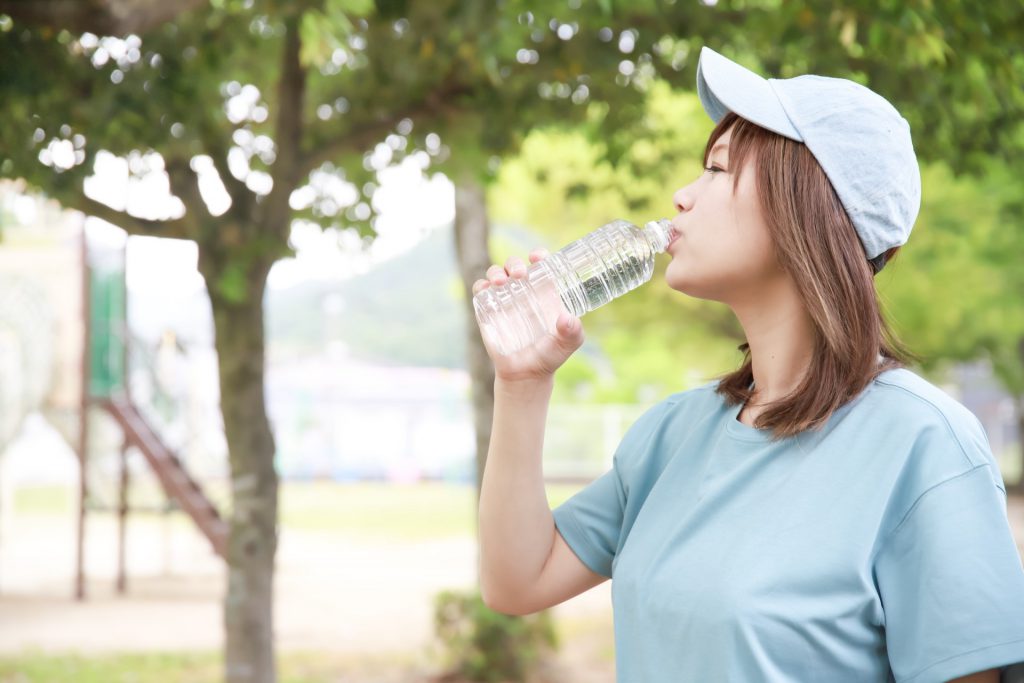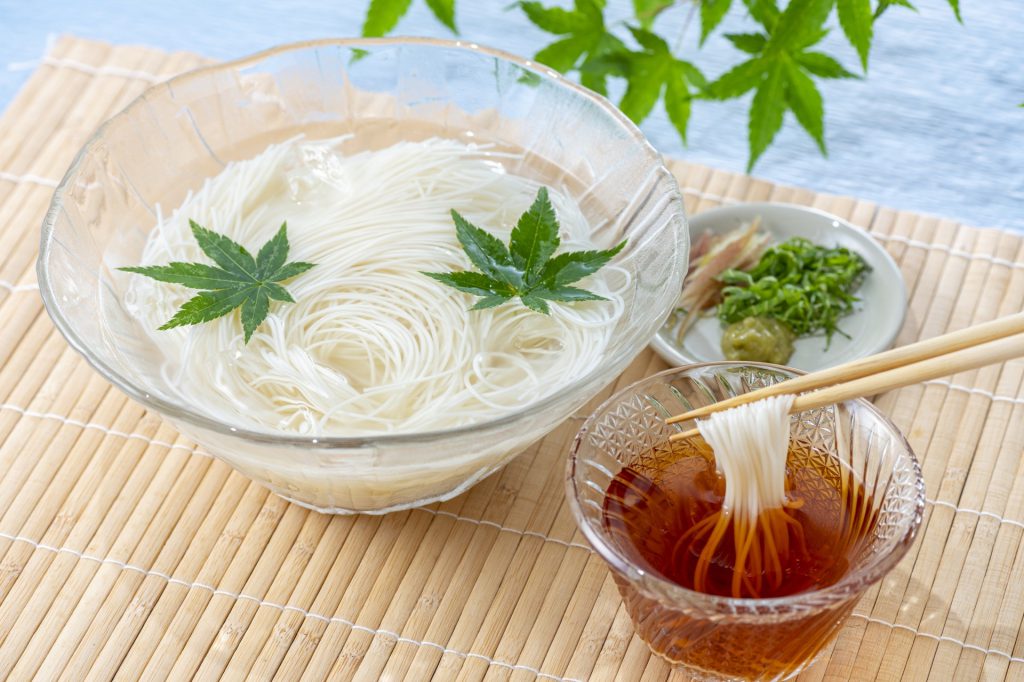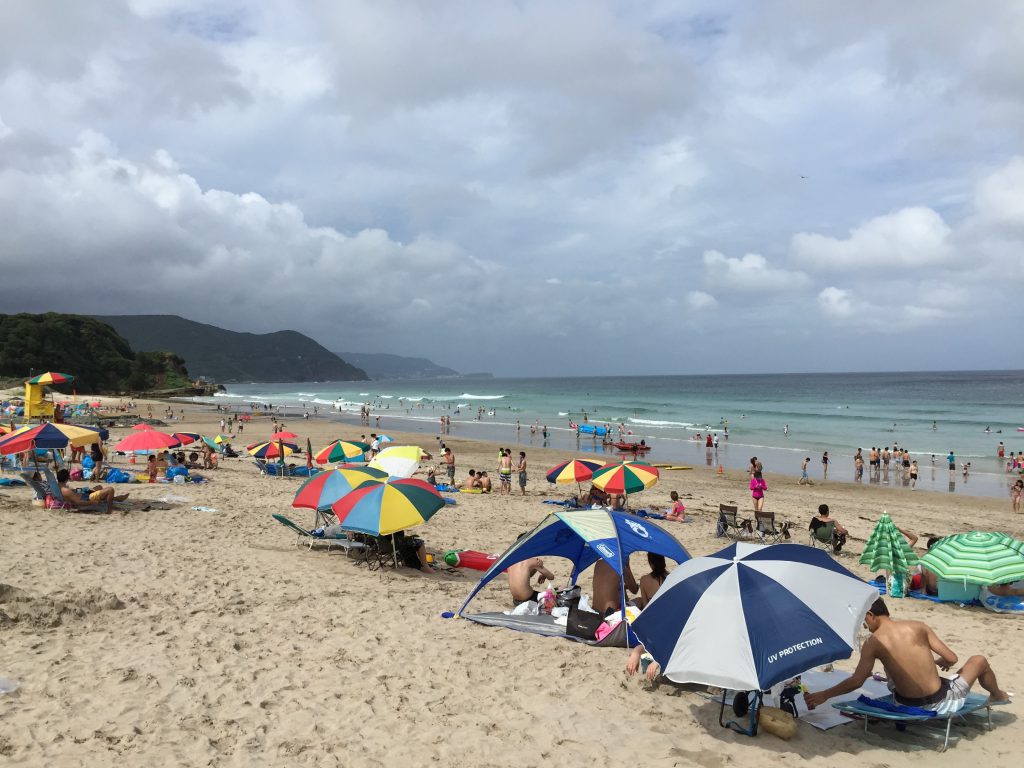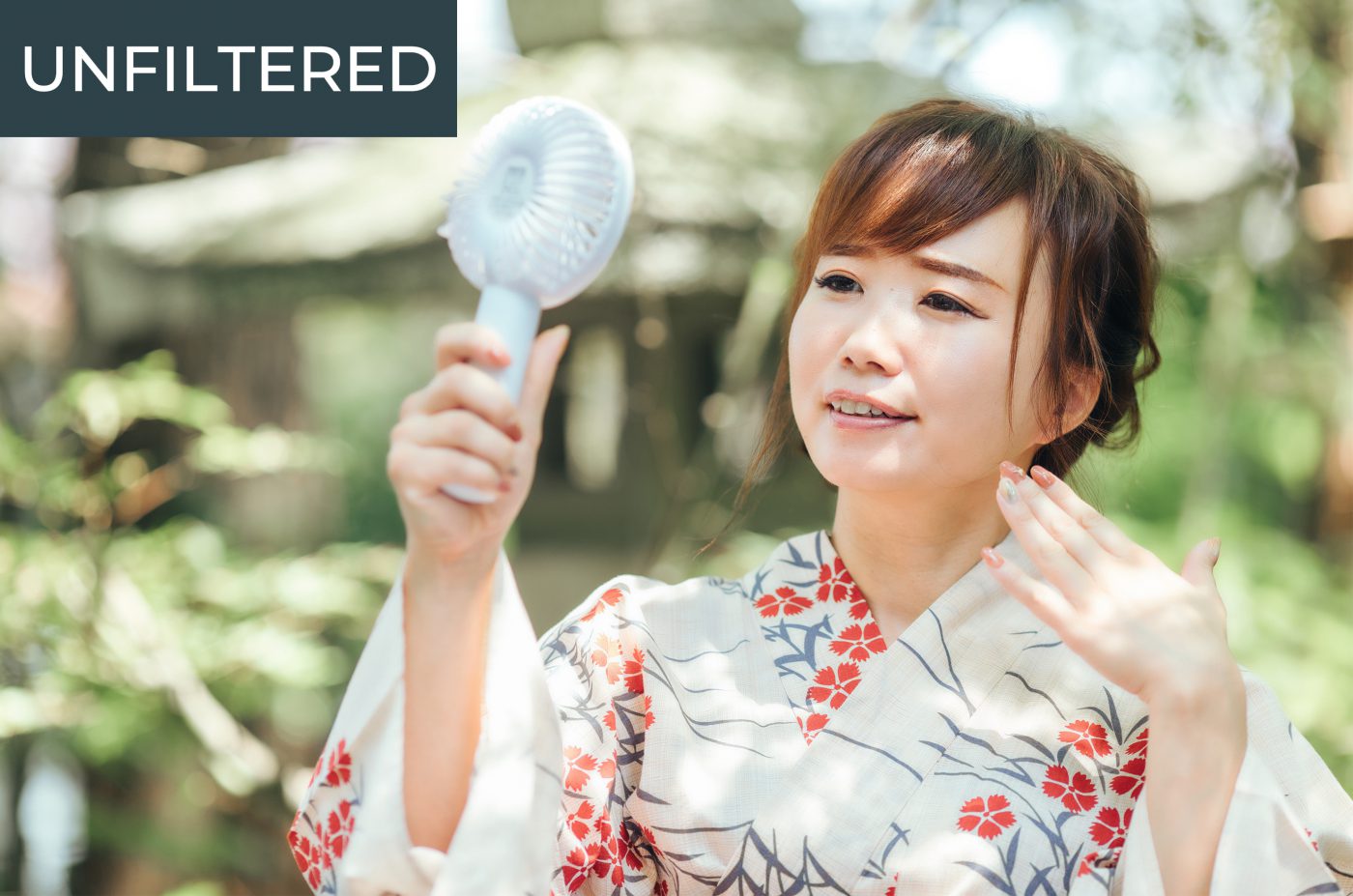Summer in Japan—Tokyo in particular—is infamous for being unbearably humid. However, if you find yourself in one of the country’s hot spots during this season, all hope is not lost. In this Kokoro Media Unfiltered discussion, we share several tips on how to make the most of this time of the year (after a little venting about the humidity, of course). Join us for a free-flowing conversation that covers summer safety advice, must-try seasonal foods, and exclusive travel tips.
Feeling the Heat

Anthony: I’m going to start with a rant. I associate summers in Japan with unbearable heat and humidity. Of course, there are a lot of things going on, culturally and otherwise, but I live in Tokyo, and because of my line of work, I can’t run around in shorts all day. The heat and humidity of Tokyo are something I’ve failed to overcome.
When I was a traditional employee, I just tried to stay inside the office as much as possible during the day. When I started working independently, I would rely on co-working spaces to avoid running the air conditioning at home all the time. Before the pandemic, I also adjusted my hobbies toward more indoor activities—going to movie theaters, for example.
In summary, I get preoccupied with beating the heat in summer, and I don’t see any solution to this besides moving to a different part of Japan. Perhaps the recent increase in remote working will make that possibility a reality. So that’s my rant about summer. I’d be happy to hear everyone’s thoughts, advice, and stories.
Amelie: I’m from northern France, which is not so hot. So yes, I found the summer here to be uncomfortable, especially for my first couple of years in Japan. However, over time, I dealt with it better. I don’t know if my body just got used to it, but it doesn’t feel as terrible as it used to.
Still, I have to remind myself to drink a lot and to eat well. When the heat makes you sick, it’s not only because you don’t drink enough, but it’s also because you don’t eat enough. So, even when the heat makes me lose my appetite, I try to eat anyway so I don’t get sick. That’s something I never had to think about until I moved here.
Anthony: Speaking of health, even though I’m originally from a very hot part of California, when I came to Tokyo, I was surprised by how many incidents of heatstroke that I saw. Every summer, without fail, I see two or three instances where elderly people have fainted on the sidewalk. Bystanders are always doing their best to help and the paramedics arrive quickly. But, this is a reminder that the heat and humidity here can reach dangerous levels. And these are just the incidents that I happen to come across. Imagine how many heat-stroke cases are happening out there that we don’t see.
Amelie: I’ve seen this too, and I’d like to add that it’s not a concern just for the elderly. I’ve seen young women faint in the street—one of them was right in front of me, waiting for the bus. Maybe that’s because a lot of young women want to diet, but that might not be a good idea during the summer.
Anthony: Thanks for adding that point, Amelie. It highlights just how many people the summer heat is affecting. Does anyone else have any thoughts on summer in Japan?
Aree: I can say that Japanese summer is worse than what I experienced in the Philippines, which is hot all year round. So what I do—especially now that we have to wear masks—is bring a portable fan with me when I go out.
Anthony: Is that effective? I’ve been considering that…
Aree: It is effective. My friend also suggested carrying a spray bottle so that you can spritz your face with cool water. I haven’t tried that yet, though.
Ayane: I was born and raised in Japan, but I’m still not used to hot summers. I feel like it’s getting hotter. I had the impression that Hokkaido and northern Japan used to be cool, even in the summer. But now, I’m seeing temperatures above 30 degrees [Celsius] in the summer, which isn’t much different than Tokyo. So, Hokkaido isn’t necessarily a great place to escape the heat anymore.
I prefer staying indoors during the summer. If I need to go out, I always use an umbrella that has UV protection. This is pretty popular with most Japanese women.
Anthony: Coming from California, that’s actually something about Japan that surprised me—people using umbrellas without rain. But now I understand the reasoning behind this.
Savoring Seasonal Food

Anthony: Are there any other summer-related topics that any of you would like to bring up?
Amelie: I’d like to recommend summer food and drinks. I find that mugicha [barley tea] feels very refreshing during the summer. Sometimes it’s even more refreshing than water. I also like cold soba noodles because they are easy to eat, even when you aren’t very hungry.
Anthony: I agree. Seasonal food is one cool thing about summer in Japan. There are a lot of delicious noodle-based meals that you can eat cold.
Aree: If you have a sweet tooth, “soft cream” [soft-serve ice cream] is great. I know that you can eat soft cream all year round but, in summer, there are special flavors that you can try.
Anthony: That reminds me—shaved ice is popular as well.
Ayane: I was thinking the same thing as Amelie: cold noodles are great. They are cheap and easy to prepare. You can even go to the convenience store and find a variety of cold noodles, which is great if you happen to be traveling.
Travel and Leisure: Making the Most of Summer

Anthony: I hate to bring up the heat again, but one way to enjoy summer is to travel—at least before the pandemic. For example, I liked to go to the beach and go swimming. However—and I haven’t put this to the test—I’ve heard that the swimming season at the beaches near Tokyo is short because of the jellyfish that start showing up in August. Do any of you have any insights on that or summer travel in general?
Amelie: I heard about the jellyfish too. Another option would be going to the mountains where there are rivers that you can swim in.
Anthony: Good point. Minakami is a great place for that.
Aree: I also recommend going to mountainous areas—Karuizawa, for example. I went to see Shiraito Falls, and the weather there was really nice. The air was cooler near all of the water. You can beat the heat if you find secluded areas.
Anthony: That’s a good tip. A lot of my friends enjoy Karuizawa and other places in Nagano Prefecture.
Ayane: Regarding the jellyfish, my parents did always say that there is a lot of jellyfish in the ocean around August and September. They told me not to go swimming around that time. So, we typically go to the ocean in July. I also recommend going to the mountains. Have a barbeque and enjoy a cooler environment.
Anthony: So in other words I’m not crazy by being concerned about jellyfish, right? We really only have about one month of carefree swimming—at least at the beaches that are easily accessible from Tokyo…
Aree: Don’t forget that if you really want to go swimming, you could check out indoor pools or resorts.
Anthony: Good point. Have any of you looked into public pools? I went to the local pool just to find out what it was like, and I got a two-page rule guide and schedule, all in Japanese. So I’m still working my way through that to find out the optimal time to go swimming there. It’s almost like you have to earn a degree just to get inside [laughs].
Amelie: Yeah, I’ve heard some friends complain about all the rules in the local swimming pools and that just discouraged me from even trying to go there.
Anthony: That’s pretty much what’s happening to me right now, we’ll see what happens if it gets too hot.
Final Thoughts: Summer Moments to Enjoy
Anthony: Any final thoughts on this topic before we wrap up?
Amelie: Yes, summer is really hot, but there are also a lot of great things about summer in Japan. These days, because of COVID-19, things are different, but typically traditional fireworks festivals are a big part of summer. So even though the heat makes us really sleepy and grumpy, there are occasions to be happy with celebrations that make people feel better. I wouldn’t recommend visiting Japan during the summer, but if you do, there are still good things to discover.
Anthony: That’s another good point. To add to that, I like how Ayane mentioned barbecues. Before the pandemic hit, summertime barbecues in the mountains or in the basin of the Tama River were so fun, and there was so much great food to enjoy. Because we’ve been in this pandemic situation for so long and we’re basically forced to sit around in the heat, perhaps I’ve forgotten about some of the pleasures of the season. So, I’m looking forward to getting through this and having more things to appreciate in the future.




